Refine
Date Range Clear
Recorded by Clear
Keywords Clear
Partnerships Clear
Organizations Clear
- American Geophysical Union 69
- NASA 18
- AGU 9
- National Aeronautics and Space Administration 9
- The American Geophysical Union 5
- 18 more
Places Clear
- AGU 2018 Fall Meeting 168
- Washington DC 167
- AGU 2019 Fall Meeting 22
- San Francisco 21
- AGU 2022 6
- 69 more
Languages Clear
Initiatives Clear
If Sharmila Bhattacharya wasn't Program Scientist for Space Biology at NASA Headquarters, perhaps she would've been a theater actress. And while her contributions on stage would likely be legendary, we're happy to have her at NASA learning about how space...
In research, Dalia Kirschbaum literally seeks landslide victories, though in her case this entails finding disasters. The research scientist at NASA’s Goddard Space Flight Center uses satellite monitoring to get clear predictions about actual landslides through satellite information. “My work...
Having an idol is important in science so you can see yourself doing something similar. Gregory Cutter met his idol, Jacques Cousteau, when he was an assistant professor at Old Dominion University. As an oceanography professor, he worked with different...
David Shiffman is a shark guy first, marine conservation biologist second. Sharks are in his Twitter handle, he’s writing a book about them, and he was wearing a shark shirt the day we interviewed him. We talked with David about...
Cloud scientist Steven Platnick is trying to learn how clouds may magnify—or minimize—the effects of climate change. He first got excited about clouds when his Ph.D. advisor, who "treated us like equals," started asking questions about clouds. "He asked questions...
Peter Michelson was inspired by the Apollo moon program to study physics; now, he's a professor of physics at Stanford University and works at the Compton Gamma Ray Observatory. We talked to Peter about pivoting into a new field after...
Brad Doorn’s, Water Resources and Agriculture Applied Science Program NASA, work includes forecasting the global food supply, including warnings and predictions about possible problems that might arise due to water supply shortages which can inform global market prices. While the...
As a mission scientist with NASA's Operation IceBridge, John Sonntag has been keeping an eye on the polar ice caps for the better part of 20 years. The good news is, he is very well-versed in the science and analysis...
Veronica Papendieck(70) is interviewed by her grandson, Jacob Bay(14) about her life.
An inspiring physics teacher, a lesson on the Copernican Revolution, and an immense awe sparked by the night sky ignited a passion for learning and research for Dr. Thomas Zurbuchen, Associate Administrator for NASA's Science Mission Directorate. Dr. Zurbuchen shares...
Dawn Wright, ESRI and Mark Parsons, Rensselaer Polytechnic Institute, share with us their journeys into data mapping, and how the field has grown, including at AGU. Before AGU embraced mapping scientists, people were starting to leave AGU. Now, they’re back,...
Sabrina Savage builds instrumentation for solar physics and studies solar flares at NASA’s Marshall Space Flight Center. The technology she helps create delivers the most high-resolution pictures of the sun anyone has ever seen. In a society more dependent upon...
Nearing the end of her career, Anne Douglass, at NASA Godard Space Flight Center, has provided the scientific community with a better understanding of the ozone layer that protects us all from ultraviolet radiation. Anne describes the energy that it...
The realization that a purple sunset in Wisconsin traced back to the 1991 volcanic eruption of Mt. Pinatubo in the Philippines fueled Chip Trepte’s interest in the movement of volcanic aerosols in the upper atmosphere. “It was a stunning revelation...
Christopher Shuman is on faculty at University of Maryland Baltimore County and a research scientist in the Cryospheric Sciences Lab at the NASA Goddard Space Flight Center. Christopher has extensive work history in Greenland and in Antarctica, analyzing layers in...
Justin Kasper is a Professor of Space Sciences at the University of Michigan, where he designs sensors for spacecraft that explore extreme environments in space. In this interview Dr. Kasper talks about what sparked his interest in space, the rewards...
As a deputy section manager at NASA’s Jet Propulsion Lab, Carmen Boening is keenly focused on rising with the tide. The trouble is, the water level isn’t going down as the climate warms. Partly through the monitoring of a set...
Kelly Fast basically works in a sci-fi movie- she works in the Planetary Defense Coordination Office at NASA, which means she finds asteroids before they hit Earth. And while she hasn’t had to deflect any asteroids yet, she’s been involved...
Who says work ends when you retire? For Tom Dunne, University of California Santa Barbara, the work is still finding him. Instead of heading off to the Amazon to find discovery, these days he need only look out his window...
Sanjoy Som, Director of the Blue Marble Space Institute of Science, believes in the importance of space science as a common goal of humanity, regardless of country – the founding inspiration of his institute. He talks about his passion for...
Let’s say you’ve been involved in a project that has produced over 70 publications. Let’s say that project has spanned half your life. Let’s say you had to cross nations, endure tough conditions and delays, and negotiate a sometimes very...
Judy Pu is currently a grad student at the University of California, Santa Barbara studying Earth Science. We talked to her about moving forward from failure and criticism, the importance of education, and dealing with the loss of a mentor.
Steve Montzka has been at NOAA for 28 years, working on atmospheric science, atmosphere chemistry, and trace gases in the atmosphere. He started there as a post-doc, drawn by the work he saw NOAA scientists doing on the hole in...
Richard Alley is a professor in glaciology and loves what he does. He talks about gathering ice cores from Antarctica as an undergraduate, only to return for his PhD and continue the work. He’s measured fallout from atomic bombs tests...
Dr. Jim Green has spent 38 years of his life working at NASA. He started there with a fresh Ph.D. in Earth magnetospheric science and helped pioneer the magnetosphere research group at Marshall Space Flight Center. He spent 12 years...
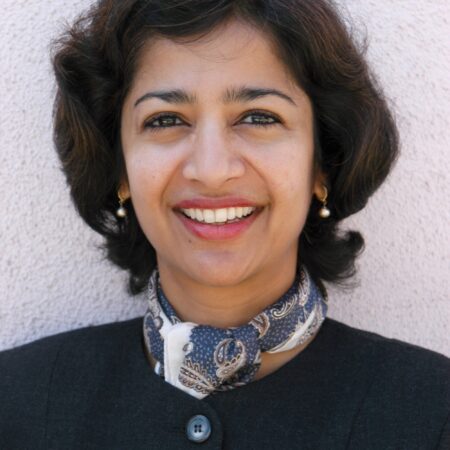
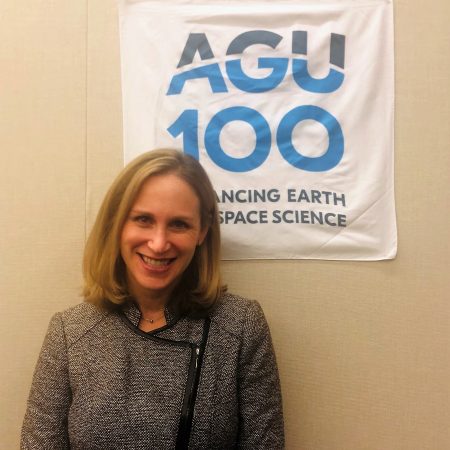
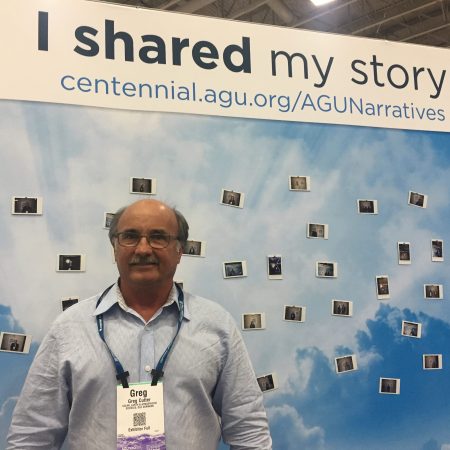
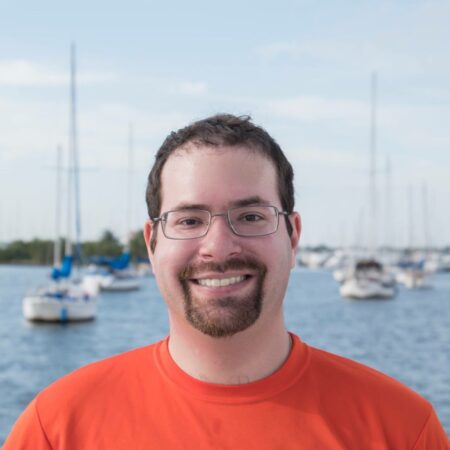

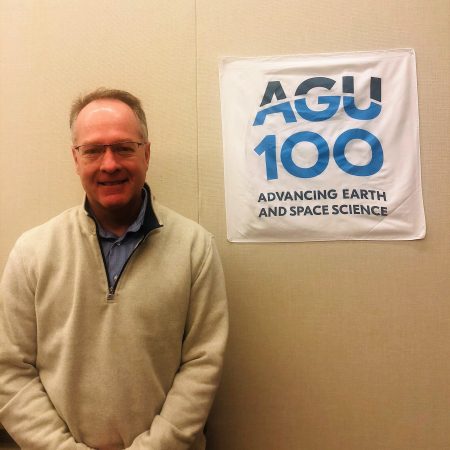
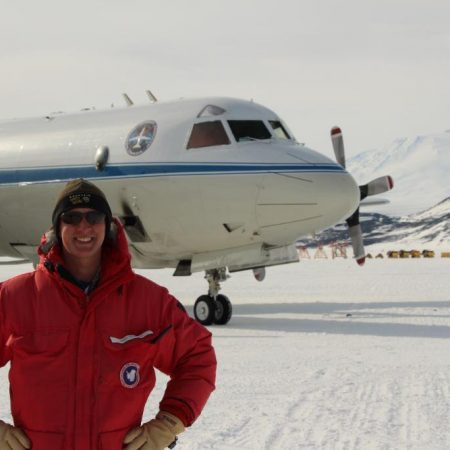
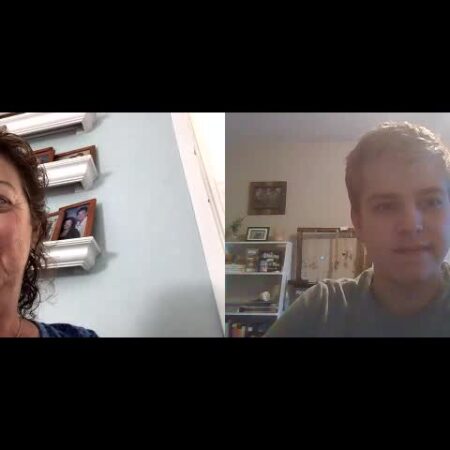
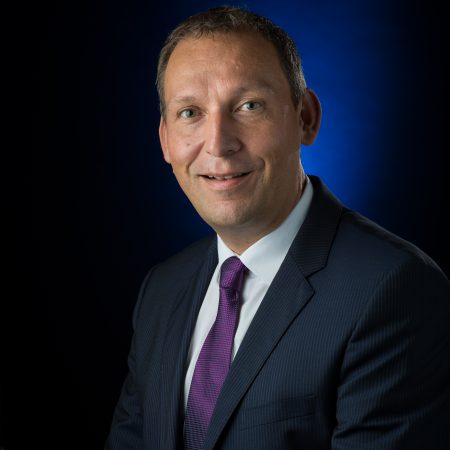
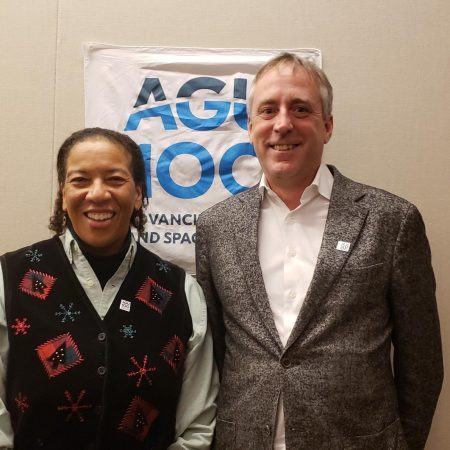
!["The sun is a terrifying and beautiful laboratory of which we know only a little [about]." an interview with Sabrina Savage](https://archive.storycorps.org/uploads/2019/02/20181213_Savage-450x450.jpg)
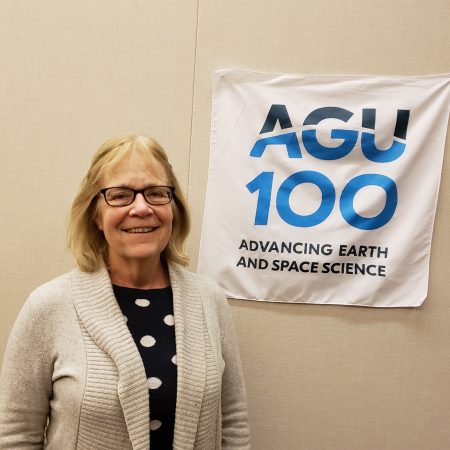
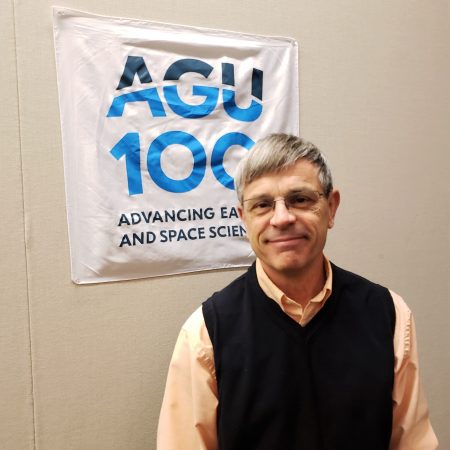
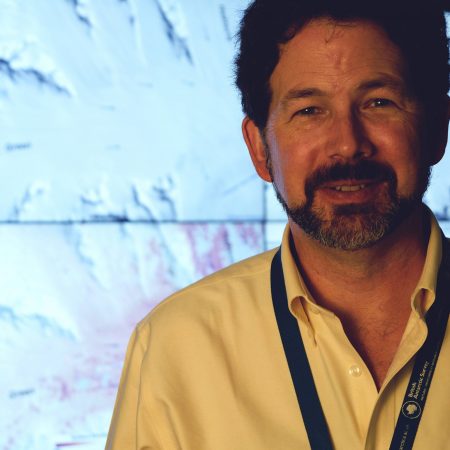
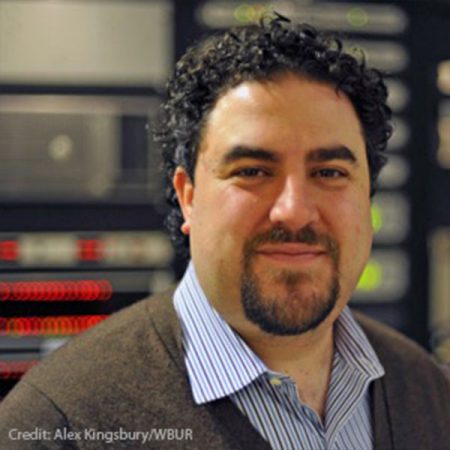
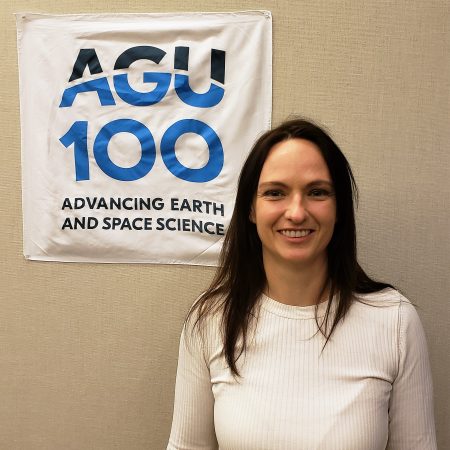
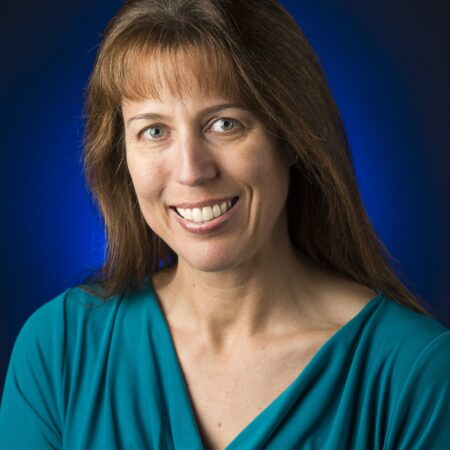
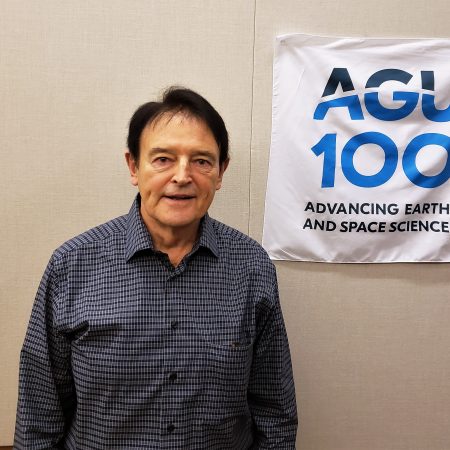
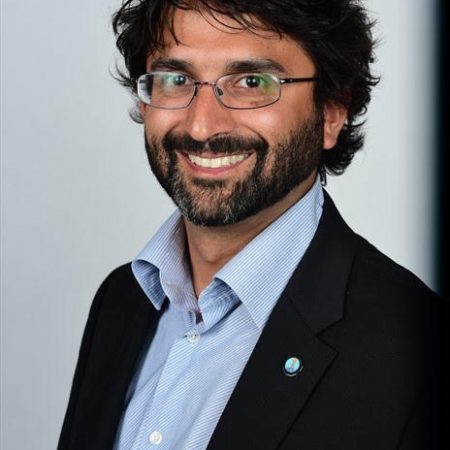
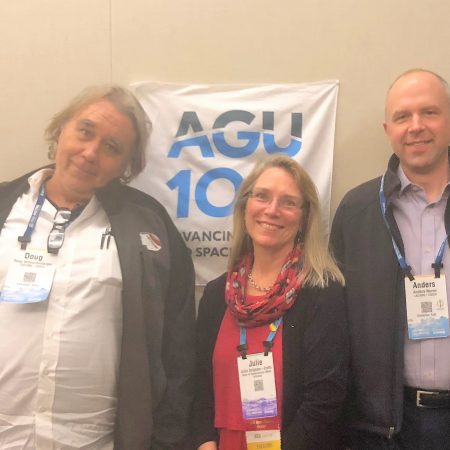
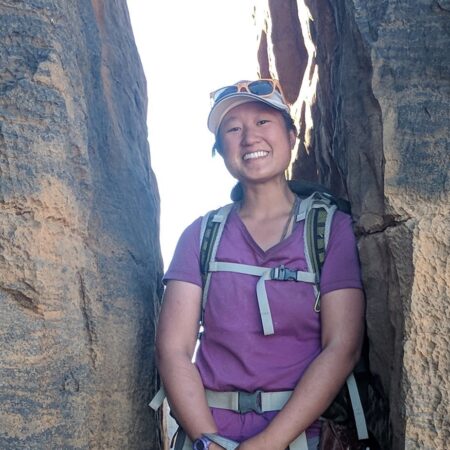
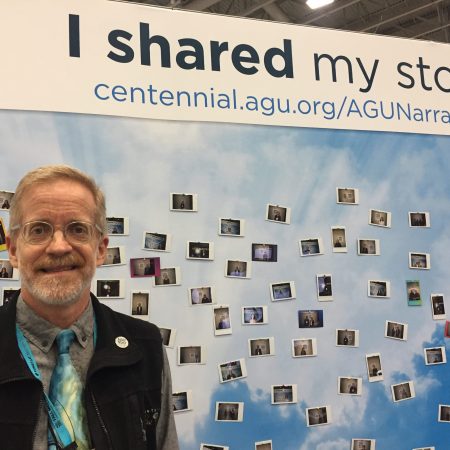
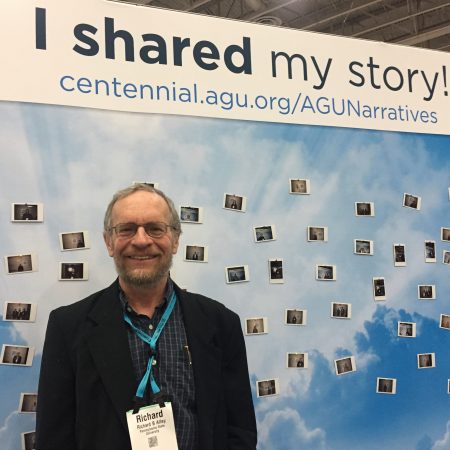
!["We're moving through a period of understanding [other] planets & how they relate to life on Earth." interview with Jim Green by Kim Cartier](https://archive.storycorps.org/uploads/2019/01/181210_Green-450x450.jpg)